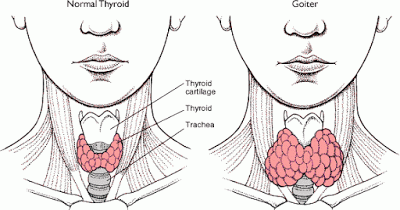Hashimoto’s Disease – Plant Protein is highly Recommended
Hashimoto’s disease is an autoimmune disease. It is characterized by the stimulation of the immune system to attack the thyroid glands making them inflamed. This in turn interferes with the production of thyroid hormones by the thyroid glands. This low production of thyroid hormones causes hypothyroidism. Thus, Hashimoto’s disease is a cause of thyroid underproduction of thyroid hormones sufficient enough to meet body requirement.
Contents
Causes and Risk Factors of Hashimoto’s Disease
- Age- it is common during the 2nd to 3rd decade of life. It affects both children and adult
- Gender- the incidence is higher in women than in men especially in women who are in their 2nd decade
- Family history and genetic predisposition to the disease
- Acute viral infection- Hashimoto’s disease occurs frequently after an episode of acute viral respiratory infection.
- Hashimoto’s disease is commonly seen in patients with other autoimmune diseases such as vitiligo, Addison’s disease, rheumatoid arthritis, pernicious anemia, diabetes type 1, autoimmune hepatitis and celiac disease.

Image source: thyroiddiseasesymptoms.tumblr.com
Medical Treatment of Hashimoto’s Disease
The first line of treatment of Hashimoto’s thyroiditis is to replace thyroid hormones. Levothyroxine is the drug of choice used in treatment.
There are two types of synthetic thyroxine: Synthetic T4 and synthetic T3. The later is widely used because of its characteristic of staying longer in the body. It ensures that there is a constant supply of the thyroid hormone in the body. It is recommended that patients’ who use synthetic thyroid hormones for the treatment of Hashimoto’s disease should ensure that their blood is routinely tested. It is through routinely blood testing that physicians can regulate the dose of the drug.
Alternative Treatment of Hashimoto’s Disease
Homeopathic medicines- Graphites, Calcarea Carbonica, Sepia Officinalis and Lycopodium Clavatum are excellent homeopathic medicines used frequently in the treatment of thyroid disease. There curb common symptoms of Hashimoto’s thyroiditis e.g. Weakness, fatigue, lethargy, cold intolerance, decreased memory, constipation and muscle cramps.
Chiropractic remedy is also vital in Hashimoto’s disease. Patients with this condition develops complications like muscle cramps, spine and bone pain, obesity and carpal tunnel syndrome. Chiropractic care has been used to relief such symptoms
Chinese herbal medicines (Qi and Yang tonic) reduce clinical symptoms, improve the secretion of thyroid hormones by the thyroid gland, reduce cholesterol and control the secretion of thyroid stimulating hormone.
Acupuncture improve blood flow across the meridians of the body, it desensitizes the immune system and heals the thyroid gland.
Home Remedies of Hashimoto’s Disease
- Yoga and acupuncture
- Exercise regularly, eat right and get enough rest
- Eat food rich in essential fatty acids, fruits and green vegetables
- Take plenty of water to cleanse and detoxify the body
- Eat food rich in iodine/ drink iodinated water
Dietary solutions of Hashimoto’s Disease
In order to control and prevent the occurrence of Hashimoto’s disease, it is important to check the quality of food being consumed. Proper dieting ensures the good health hence normal functioning of the thyroid glands. Food recommended for patients with Hashimoto’s disease include protein healthy fats, and plenty of water.
Proteins- It is recommended that to prevent Hashimoto’s disease people should take in at least 20 grams of proteins for every meal. Plant protein is highly recommended. Whey protein and vegetable protein are good sources of protein.
Foods rich in antioxidants- Antioxidants rich foods are important because they help repair the damaged body part following an inflammation. Antioxidants includes vitamins A, C and E, zinc, iodine and selenium
Healthful fats- Patients are recommended to take at least 4 tablespoons of these good fats daily. These fats can be found in olive oil, avocados, coconut and its oil, seeds especially chia and pumpkin, flaxseed and lastly nuts.
Avoid goitrogens e.g. cabbage, broccoli, cauliflower and brussels sprouts. Gluten containing meals should be avoided
Vitamins and Minerals for Managing Hashimoto’s Disease
Vitamins A, D, E, K, glutathione, selenium, zinc, copper, omega-3 fatty acids are essential components of our diet. Foods rich in vitamins and minerals provide the body with antioxidants that modulates the immune system, neutralizes toxins and reactive oxidants and dampens immune flares. They work together to promote healing of the thyroid gland.
Scholarly References
- MedlinePlus – Chronic thyroiditis (Hashimoto disease)
- WomensHealth.gov – How do I find out if I have Hashimoto’s disease?
- University of Maryland Medical Center – Chronic thyroiditis (Hashimoto’s disease)

